
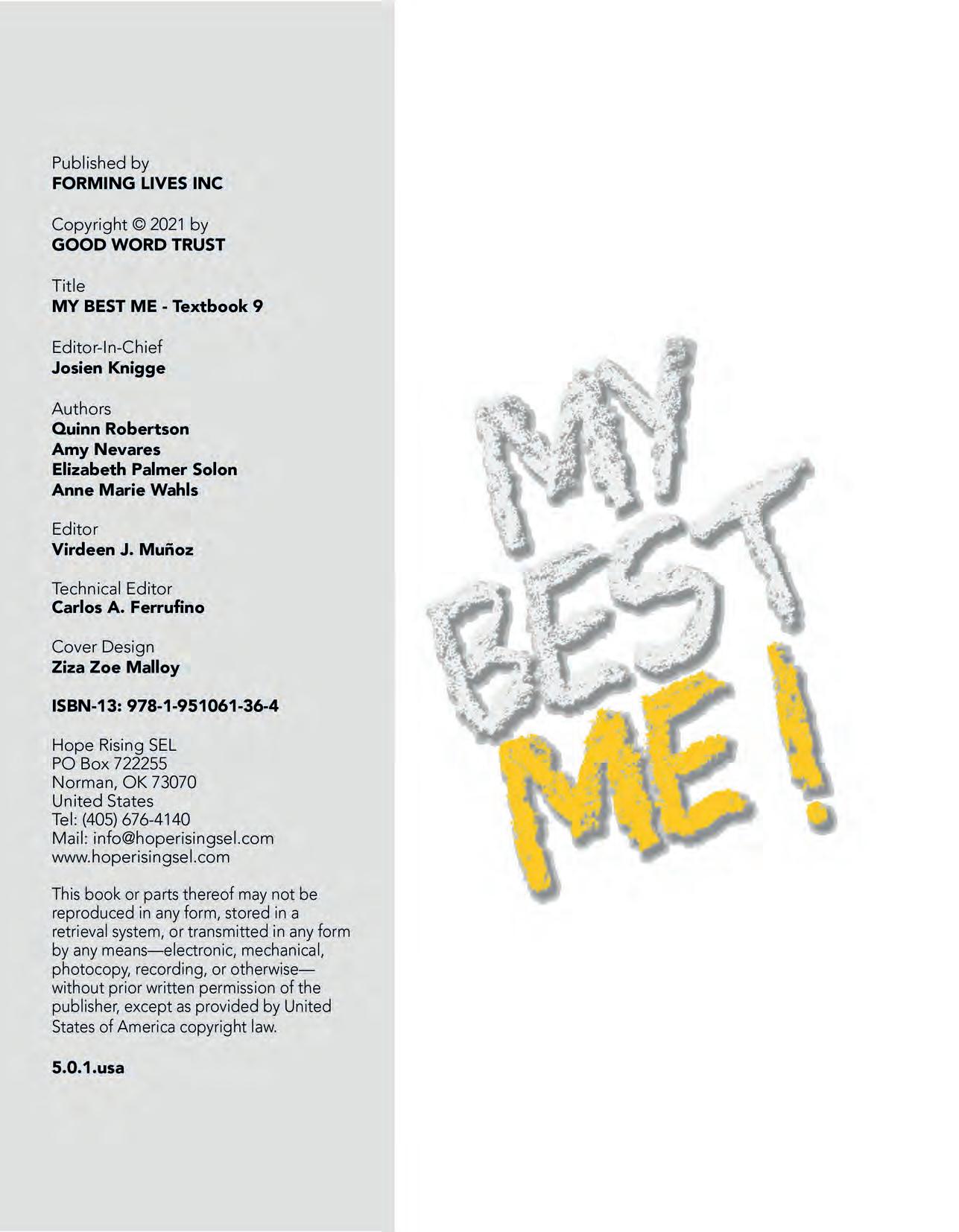
Hope Rising EDU info@hoperisingedu.com www.hoperisingedu.com
There is hope! Are you optimistic and excited about what is happening in your life or are you discouraged and having a hard time even thinking about tomorrow? No matter where you are, hope is essential to your life. It is the knowledge and assurance that tomorrow will be better than today and that you are very much involved in that process.
At times you can feel overwhelmed and powerless with the hardships you encounter. Hope is what gets you up, gets you involved, and keeps you going to bring about the change you long for. Actively making things better creates a sense of power and accomplishment that puts you on a path to success.
Hope will improve your grades, thoughts, emotions, and behavior. Hope will help you find friends that encourage you and opportunities you thought were not available.
Hope has given sports underdogs the strength to win even though they did not have the best talent. Hope has empowered soldiers, sailors, airmen, and marines to win battles against overwhelming odds. Hope is how everyday heroes conquer fear and adversity.
My Best Me will teach you that hope is not wishful thinking, an emotional moment, or a dream. Hope is a decision. Because hope is a decision and not a wish or an emotion, anyone can have hope no matter who they are or the challenges they face.
Think of hope as a treasure map:

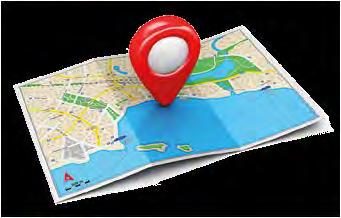
1. You set a goal. The goal is the treasure, short-term or long-term; things you want in life.

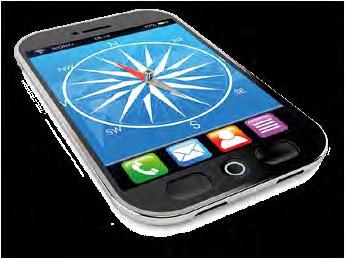
2. You find a pathway. The path is the route to the treasure. It is a way to achieve your goals. You will discover that hardships and adversity are sometimes on the path. Other times you will need to discover a new path.
3. You build willpower. Your longing for change will give you the willpower to get the treasure no matter what obstacles are in your way. It is the mental strength to stay on the path or find a new path no matter what happens.

2
HOPE
GOING DEEPER
Hope - Three Practical Steps
As you go through the lessons in this book, apply what you learn to increase hope in your life.
Setting Goals – This is the process of identifying what you want to be, do, or have and when you want to be, do, and have it.
a. Reaching your goals must be valuable to you. Think of something that you want.
b. When setting goals, be specific. Define your goals and what they mean to you. Make it simple.
c. The goals you set can be short-term; something you want to be, do, or have today, in a week or even in a month from now.
d. The goals you set can be long-term; something you want to be, do, or have in the future.
e. Goals with dates are powerful because they create a target for you to work toward.
f. Write down your goals and put them where you can see them often.
Finding Pathways – This is discovering how you will achieve your goals. Think of pathways as the roads that will lead you from where you are to your goals (where you are going).
a. Pathways solve the problem of how to reach your set goals.
b. Pathways are a series of small steps that move you in the direction of your goals.
c. There are many roads that can lead you to your goals.

d. You can change pathways on the way to your goals.
e. Very few physical roads are perfectly straight; there are turns and rough places just like you will encounter to get to your goals.
Building Willpower – This is why you will achieve your goals. If goals are your destination and the pathways are the roads to get there, willpower is the vehicle that carries you there. The greatest goals in the world and best pathways are nothing unless there is willpower to succeed.
a. Building your willpower means finding and developing the strength and desire inside of you to reach your goals.
b. Your willpower is further developed through healthy strong relationships with people who care for you.
c. The intensity of your desire, or your resolve will produce the energy to succeed.
d. Willpower is stronger than motivation.
3
HOPE IS GOOD FOR EVERYONE
My Best Me is your guide to discovering your true identity and purpose. Hope is important for your journey. When choosing goals and deciding on a pathway, knowing where you are gives you a place to start! Having a place to start will give you great confidence, a good attitude, and the willpower to succeed.

4
FA M I L IES SCH O OLS CLAS S R OOMS CREATE LEADERSHIP AF M I L Y P U ESOPR WORK MPRODUCE YBEST ME C URRICULUM MYBESTME TEACHE R TEXT ANDTRAINING MYBEST ME PARENTS SUMMARIES LO VE COMMUNITY ECONOMY HEALTH IDENTITY ENVIRO N TNEM HOPE SEL teamwork • willpower • leadership • goal setting • growth mindset • problem solving time management • reasoning skills • organizing skills • strategic thinking • conflict resolution willingness to learn • creative thinking • stress management • finance management communication skills • emotional intelligence • nonverbal communication © Copyright 2021
COMPETENCIES
You will find five units that help you discover the building blocks of society.
IDENTITY
Discover who I am
My role
My personality
My character
HEALTH
Discover how to maintain order
Physical Mental
Emotional
COMMUNITY
Discover how to interact with others



Family People like me
People different from me Strangers
ENVIRONMENT


Discover why and how to manage nature
Natural resources
Plant life
Animal life
ECONOMICS
Discover how to multiply resources and produce wealth
Income generation
Financial literacy
Resource management

5
UNDERSTANDING THE ICONS
Self-assessment questions or surveys that cut to the heart of the issue
Tasks or games that involve learning through direct experience.
To obtain knowledge, understanding, and insight through interpreting a passage of text
To use or put it into action that which is understood
To watch something carefully for a specific purpose
READ APPLY OBSERVE REFLECT
To think, ponder, or meditate on somethig
To express ideas in the written word
A visual segment to enhance understanding of a specific topic
To verbally express opinions, discuss or debate issues, explore solutions, arrive at consensus

CONCLUDE
One’s own take-away from the lesson
BE INSPIRED LISTEN
Encouraging quotes, words of wisdom, or short bio blurbs of Hope Heroes
To learn, write, sing, or listen to a song, enjoy a harmony of sounds
ASK MYSELF ACT WRITE VIEW I
COMMENT
6

CONTENTS Introduction Identity 09 Lesson 1: Hope Works .................................... 10 Lesson 2: Three Brains, One Mind ................. 12 Lesson 3: Mindful Reflection .......................... 14 Lesson 4: Embrace Change ........................... 16 Lesson 5: My Inner Voice ................................ 18 Lesson 6: A Bright Future ............................... 20 Lesson 7: The True Mirror ............................... 22 Personal Notes 24 Introduction Health ........................................... 25 Lesson 8: Standing Strong ............................. 26 Lesson 9: The Whole Truth, Nothing but the Truth 28 Lesson 10: Feed Your Brain .............................. 30 Lesson 11: Social Emotional Learning ............ 32 Lesson 12: Controlled Stress ............................ 34 Lesson 13: My Life, My Health ......................... 36 Lesson 14: Free Is the Way for Me .................. 38 Lesson 15: The Locus Rule ............................... 40 Personal Notes ................................................... 42 Introduction Economics ..................................... 69 Lesson 27: Taking Care of Business .................. 70 Lesson 28: Less Is More in Designing Your Happiness 72 Lesson 29: To Be a Millionaire ........................... 74 Lesson 30: Pursue Meaning, What You Sacrifice Determines Your Success 76 Introduction Community 43 Lesson 16: Intentional Listening ....................... 44 Lesson 17: Moral Universe ................................. 46 Lesson 18: Kindness Goes a Long Way ............ 48 Lesson 19: Rights and Privileges ....................... 50 Lesson 20: Sticks and Stones ............................ 52 Lesson 21: Critical Thinking ............................... 54 Lesson 22: Cyborgs ............................................ 56 Lesson 23: Power of Friends ............................. 58 Personal Notes .................................................... 60 7 Glossary ............................................................. 78 Hope ................................................................ 02 Going Deeper 03 Hope Through Social Emotional Learning .......... 04 Competencies ................................................. 05 Understanding the Icons ................................. 06 Introduction Environment .................................. 61 Lesson 24: Science Bias ..................................... 62 Lesson 25: The Science of Water ...................... 64 Lesson 26: Making a Difference ........................ 66 Personal Notes 68
Three Brains, One Mind
To learn to be thankful no matter what
READ

Did you know you have three brains? Humans have brain cells in their head, on their heart and in their gut. The information collected by our three brains fuses together to help us process the world around us with our whole being.
1. The brain in our head is cognitive intelligence (to know truth). The first brain is the one we normally think about; the one in our head. This brain is in charge of thinking, cognition, and perception. It helps us to make meaning out of the world around us and allows us to communicate. The head brain analyzes information and applies logic.
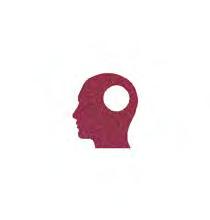
2. The brain in our heart is emotional intelligence (to feel truth). Our second brain is where our values come from. The heart brain senses the world through feelings. This brain helps us to be at peace. This brain is ruled by the inner life of emotions, memories, images, visions, and dreams. This is also where our imagination lives.

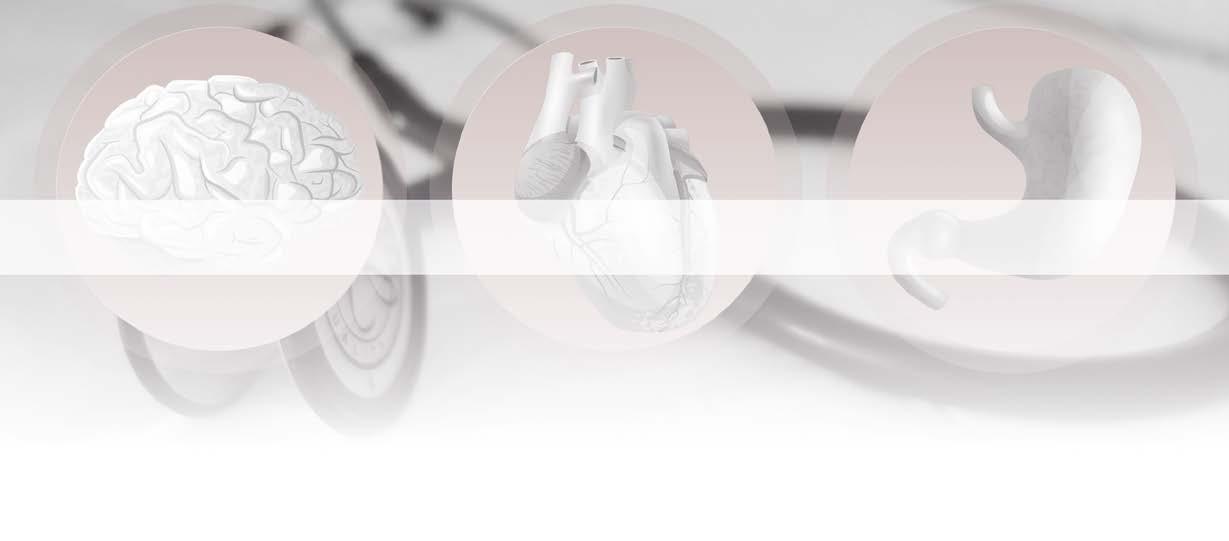
3. The brain in our gut is digestive intelligence (to process truth). Our third brain plays a key role in mental health and emotional well-being. This brain is where we find our core identity; who we are. The gut brain also controls our immune functions. It is where our instinct and “gut feelings” comes from. It is also responsible for producing around 95% of the body’s serotonin, the “happiness hormone.”
Although the head, heart, and gut brains work together, they have very different physical functions and perform different mental and emotional roles. Activating all three brains awakens your intuition and insight, creativity, well-being, and vital energy. Each of these three brains is a powerhouse of computing potential. Orchestrating your three brains will balance your entire nervous system, calm your mind and strengthen your body. Being aware that your three brains are working simultaneously will optimize your intelligence.
ACT - Exercise your three brains


Your three brains thrive when your body and mind feel safe. Explore the following practical steps to creating connection between the brains.

12 PATHWAYS GOAL Lesson 2
1. Take long slow breaths. Breathe in deeply with your belly through your nose, hold your breath for a moment and then slowly breathe out through your mouth. Try to adopt a breathing rhythm. This sends soothing safety signals to your body by activating the calming, relaxing branch of your nervous system.
2. Continue deep breathing with your eyes closed. In your mind’s eye, focus on your head, heart, and gut all communicating and coming in sync with each other. Stress disconnects your brains. Calming relaxation harmonizes them.
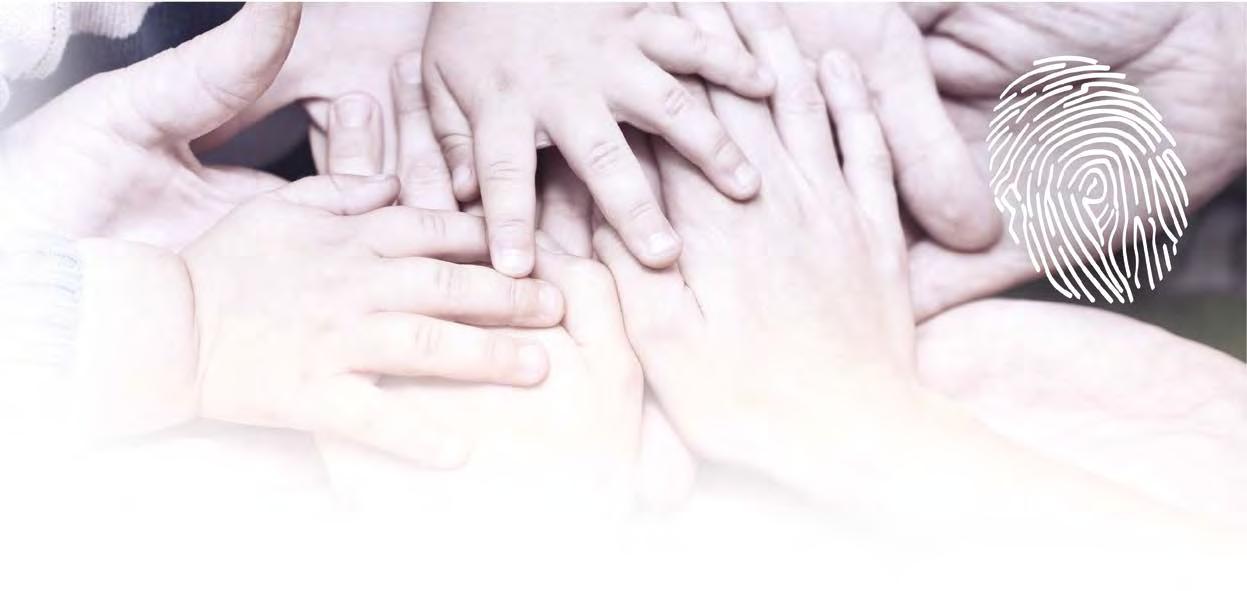
3. Think of things for which you can be thankful. Feeling genuine gratitude and appreciation activates your body’s healing defenses and impacts each of your three brains. Gratitude can rewire your mind. When this happens, every system in your body enters coherence. Everything is in sync and the result is greater well-being, more fulfillment, and increased joy!
4. Learn to apply the Cortices Technique through this link: 4yu.info/?i=98021
VIEW Spoiled Girl Demands a Limousine
COMMENT
What are your thoughts when you see this video?
Do you think the three brains of the first girl are aligned? Why?
Do you think the three brains of the second girl are aligned? Why?
Which girl would be the more happy and content in life? Why?
Which girl do you resemble in your behavior and attitude?
WRITE


4yu.info/?i=98022



List five things for which you are genuinely grateful and feel appreciation. __________________________________________ __________________________________________ __________________________________________ __________________________________________ __________________________________________
ASK MYSELF

When I practice gratefulness, do I feel something different happening inside of me in comparison to when I complain, fuss, and criticize?
I practice gratitude and deep breathing exercises to maximize my overall health.
WILLPOWER 13
Controlled Stress
To recognize my stress triggers and to learn practical steps to defuse stress

VIEW
Stress at School | Carley Rogers | TEDxYouth@ ParkCity
READ
Imagine overhearing this conversation in the hall:
Student: “I have a five-page report due, a group presentation in another class, that nobody is working on but me, basketball practice every day and two games this week. Plus, my parents keep nagging me to clean my room. When do I have time?”

4yu.info/?i=98121

Another student: “I know! I know! I have three tests tomorrow and extra practice tonight for the band concert tomorrow. I am so stressed out!”
Think of stress like a string on a guitar. If there is not enough stress the string is sloppy and cannot play a note. If the string has too much stress it will break. If the guitar string is well-tuned with just the right amount of stress, it can play beautiful music.
Stress is a normal and even healthy sensation of tension and anxiety. Stress can motivate us to get our work done. It can activate our adrenal glands to react fast, saving our lives. However, too much, continuous or toxic stress can cause negative side effects and have lifelong health consequences.


What causes or triggers stress? Stress triggers are numerous and vary from person to person. Common stress triggers in teens include changing schools, tests, breaking up with a boyfriend/girlfriend, schoolwork, disagreements with friends, problems at home, demand for good grades, graduation, and pressure from parents. Toxic stress is becoming more common because there is an ever increasing demand on performance, an overload of information, and less quiet time.
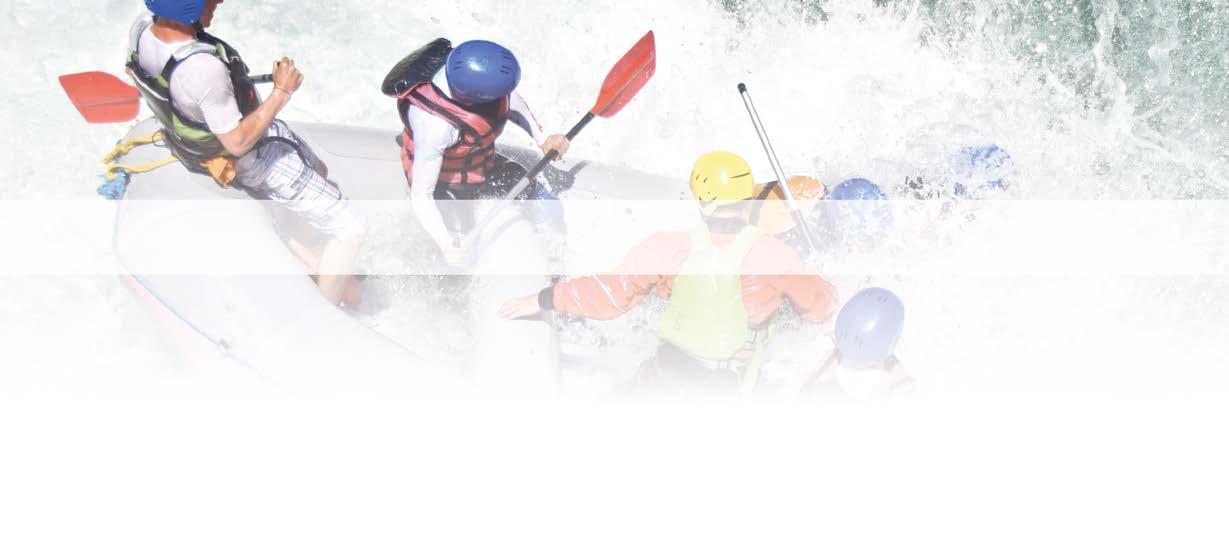
Multiple stress triggers can overload anyone. You know you are stressed out when you feel sick, exhausted,
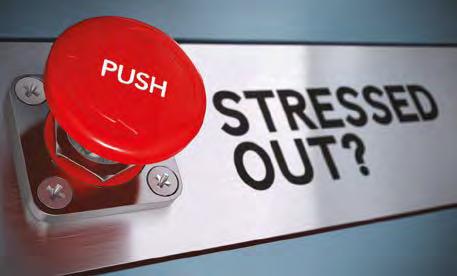
GOAL PATHWAYS Lesson 12
unmotivated, anxious, and even depressed. If we experience an overload of stress for long periods of time, daily tasks can be difficult to handle, affecting us physically, emotionally, mentally, and socially.
Dealing with stress promptly and effectively will avoid the strain of stress and its destructive influences. Life is full of challenges that shape us and make us strong. We can develop healthy habits that can strengthen us in how to deal with the stress in our life. We can prioritize and organize our schedule, set realistic goals for ourselves, and surround ourselves with people who support us. In addition, we can avoid people who are negative, cause drama, and tempt us to do things we know are destructive and dangerous. We should spend time weekly doing activities that relax and entertain us, refreshing ourselves for the challenges (known and unknown) ahead.
How can we prevent an overdose of stress? Sleep at least eight to nine hours a night, eat balanced meals at scheduled times, exercise, practice mindful reflection, share concerns with a trusted friend.
ACT

In groups of three or four, answer the following questions:
• What stresses you?
• Do you feel like you are under too much stress? Please explain.
• What are your stress triggers?
• How do you know if you are suffering from toxic stress?

• What are some “stress busters” to help you manage and prevent stress?

APPLY
It is time to have fun and take off some stress. Create a poem, a song, a dance or any other fun presentation that talks about stress in a funny manner. You can share your work with the class if there is time. You can write your own music or use existing tunes. The group can either sing it “live” or make a video of it to show the class. You can do a drama or make a video, you can dance or do a game. Relax and make it fun.
REFLECT
“I try to take one day at a time, but sometimes several days attack me at once.” By Jennifer Yane
• Does this quote ring true for you?
• Have you ever felt overstressed? When? Why?
• What specific activities help calm you down and bring relaxation.

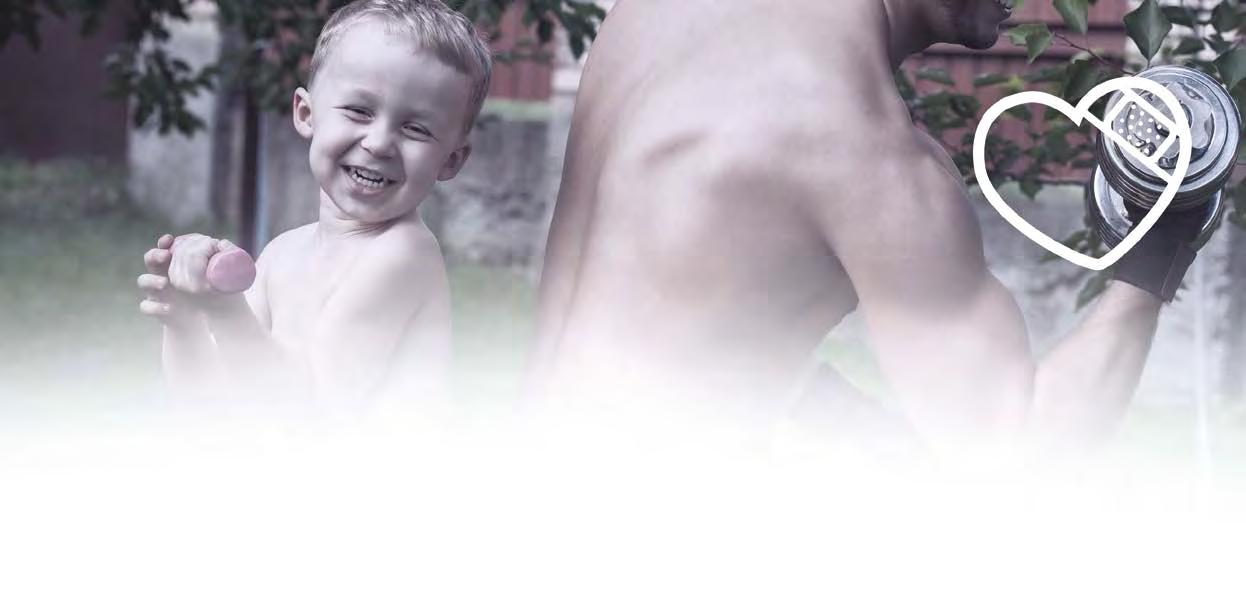
I recognize my stress triggers and deal with stress purposely and deliberately.

35 WILLPOWER
Intentional Listening

To learn to truly hear and pay attention to what others have to say
READ
Intentional listening is based on a sincere interest in others. This is mindfully hearing another person and attempting to comprehend the meaning of their spoken words and the feelings behind those words. Listening is a necessary skill for building strong leadership, valuable relationships, and thriving communities. If you need proof, just think of a recent incident when you felt like no one was listening to you. How did that make you feel? How long did you keep talking after you felt no one cared?
Intentional listening is an effective agent in improving and developing communities because you express a willingness to be taught by the other side. You desire to understand another perspective and you appreciate that someone else might know something you do not.
How empathetic can we be if we do not pay attention to what people want to tell us? We are naturally inclined to think about what we are going to say instead of listening to what the other person is communicating. You cannot listen if you are busy thinking and talking.


When people have different points of view, they often fall into the trap of trying to win their argument. They miss the true point of a good conversation which is to come out wiser than you went in. The best thing to do when you find yourself in a conversation with an opposing viewpoint, is to take advantage of what someone is trying to tell you. Give them a chance to fully explain. Pay attention so you can understand exactly what they are thinking. Who knows, maybe in the end, you could find their ideas or suggestions are better than some of yours. It could prevent you from facing future problems. If we learn to listen to the other person, hear what they have to say, and respond to what was communicated, we can constructively organize our thoughts to offer a meaningful response.
It is not a meaningful conversation if the only goal of the conversation is to get the other person to accept your ideology; to win the argument. It is not about winning. It is about learning.
BE INSPIRED
“The test of a first-rate intelligence is the ability to hold two opposed ideas in mind at the same time and still retain the ability to function.” F. Scott Fitzgerald


44 PATHWAYS GOAL Lesson 16
VIEW
Effective Listening Skills: Repeating their last few words is a major active listening tip. The overall lesson is that attentive listeners give feedback.
COMMENT
Have a class discussion about the video and practice active and effective listening.


1. How do you give nonverbal feedback?
2. What does it look like when you really want to hear what the other person has to say?
3. What does it look like when you are just waiting for your turn to speak?
4. What is the best way to give verbal feedback when you are attentively listening?
5. What are the keys to listening to the big picture?
6. How do you keep the conversation focused on them and their topic?

7. How do you best limit your talking turn and be concise?
4yu.info/?i=98161
8. Why is taking action and making sincere follow-up commitments evidence of effective listening?
APPLY
Show respect - Part of being an intentional listener is communicating respect by listening. By speaking less, your conversation partners will more easily accept what you have to say. To harness the power of ideas, you must resist the urge to “help” your conversation partner by providing immediate solutions. Learn to respect your partner’s ability to identify critical information. Being respectful does not mean avoiding tough questions. However, effective listeners routinely ask penetrating questions to uncover the information needed to make better decisions. The goal of active listening is to ensure the free and open flow of information and ideas. You will learn a lot more if you listen well.
Keep quiet - Get yourself out of the way of your conversations so you can hear what is important. Do not hog the spotlight, try to prove your own smarts, or emphasize how much you know. Speak only to underscore or elaborate on your conversation partner’s points. Your partner should speak 80 percent of the time, with you filling the remaining 20 percent. Make your speaking time count by spending most of it asking questions, rather than having your say.
REFLECT
• Did you know that people report having the best conversations when their conversation partner does not speak at all?


• Practice talking without speaking, and it will make you a better friend and leader.
• It is not how well you speak, but how well you listen.
I am an on-purpose, intentional listener and a committed, lifelong learner.
45 WILLPOWER
Slow Down, Practice Silence Take Non-verbal Cues
Ask Deeper Questions Withhold Judgement
Avoid Interruptions Listen to Understand
Making a Difference
To understand important recurring global issues facing people around the world.

ASK MYSELF
Am I aware of what is happening in the world today? Do I care?
READ
Violence, destruction, and human tragedy, whether it is in a movie or in real life, affords us the opportunity to confront our fears of pain, weakness, despair, degradation, and annihilation while still feeling some level of safety. A similar sensation is sometimes experienced when standing close to a window in a tall building. Even though we are safe, we can experience a spark of fear looking down at the street far below.
We ask ourselves ultimate questions like, “If I was in that situation, what would I do?” “Would I be the hero or the villain?” “Could I endure the pain?” “Would I have the strength to recover?” The danger is, that when we are not under the pressure of tragedy, we tend to think better of ourselves than we really are. We play out the different scenarios in our head that make us feel better because it helps us to reconcile the reality that tragedy is uncontrollable.
While we have no control over when and where disaster strikes, finding a way to help those in need helps to divert our attention to hope. Making a difference makes a difference. You can be a change agent because your actions can bring hope to those in need.

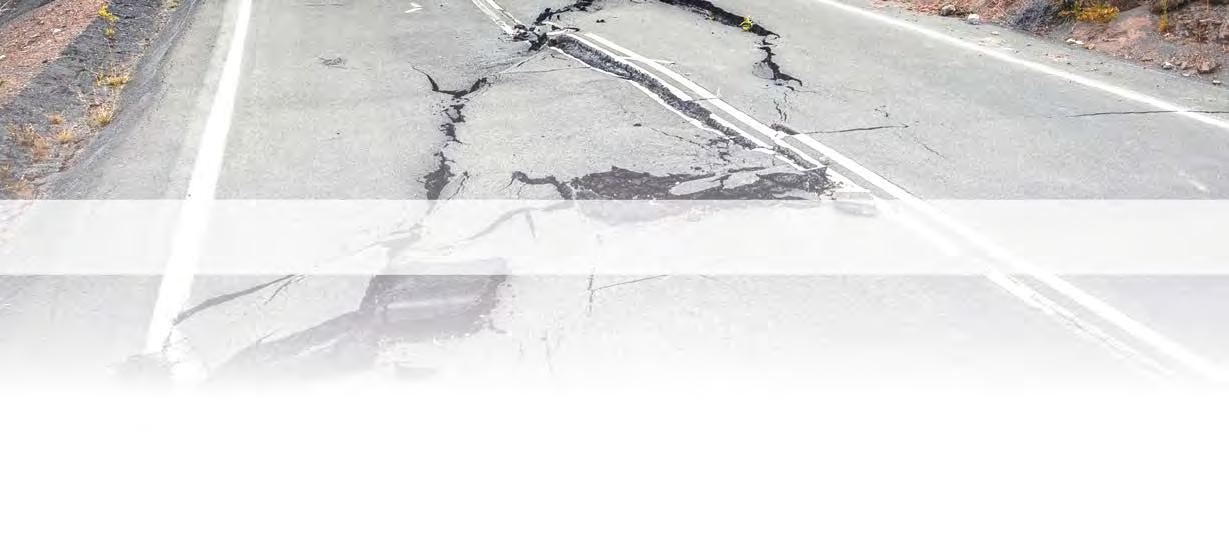
It is easy to be overwhelmed into apathy by looking at an ocean of grief, but we are moved into compassionate action by seeing one crying child. Using the same strategy as the news, look for individual people with needs you can address. Whatever the need, caring about the plight of others helps us put our own problems into perspective. The real tragedy is when we insulate ourselves against the pain and suffering of others. Feeling numb and indifferent is understandable given the 24-hour news cycle filled with bad news, but ignorance is not a solution. Showing less empathy makes us less human.
WRITE


This is an individual assignment. Use the questions below to organize your research. What tragedy or unrighteous issue affects you:

66 PATHWAYS GOAL
Lesson 26
Explain the problem in your words:
Where does this suffering and grief take place?

What is being done to help?
What are your feelings when you read about this issue or see it on the news?
What if this happened to you or someone you love? How would you react?
What is preventing society from totally eliminating this issue?
You and your classmates can help work toward a solution to this problem by...

COMMENT
Once you are done with your personal assignment, find other classmates that are moved by the same or similar issue and share your thoughts and observations with each other.

APPLY
As a class, vote on one of the topics below or add some of your own. What topic touches you the most? Focus on your emotions when voting.
What can you do as a class to take action? You may feel helpless, hopeless, and even clueless, but if your class could find just one person in need, could you; would you, help them? Research and discuss these issues and how they impact you. Start a creative process to find solutions and take action.

REFLECT
When you hear about devastating tragedies and see heartbreaking images, what happens inside you? Do you ever think that something like that could happen to you or people you love?
If a tragedy happened in your family or with your friends, what would you want others to do to help?
I educate myself on world issues, because I desire to alleviate suffering to the extent of my capacity.
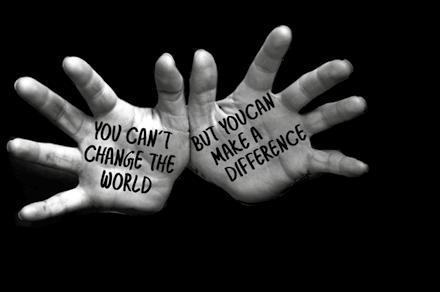

67 WILLPOWER
• Child labor • Human trafficking • Natural Disasters • Poverty • Terrorism • Hunger • War • Disease
Less Is More in Designing Your Happiness
To understand that less is more to greater satisfaction, happiness, and hope
VIEW
Design Matters: Doing Better with Less




COMMENT

How would you apply this concept of decreasing things in your life to experience increase?

Do you struggle with the desire to have the latest, the newest, and the most expensive?
How do you feel when you buy the latest, the newest, and the best? How long does the feeling of joy last after a big purchase? Please explain.
READ
In today’s divided and volatile world, we need an outside-the-box solution to achieve happiness. Economics is a good place to start. The world’s economy was created in response to peoples’ desperate desire to alleviate scarcity and lack. Even after thousands of years of improvements and advancement, our current system still reflects lack. Surely, you have heard, “Buy now while supply lasts!”
When humans had little means to improve productivity, they lived in a world full of deficiencies, or the “less is less” economy. Scarcity and lack were very real. To ensure survival, people had to go after as many resources as possible, creating fierce competition. Getting all you could get before somebody else gets it, went on for thousands of years. A mentality of lack imprinted an acute desire to acquire more on the human instinct. Such instinct motivated people to keep working hard and smart to advance civilizations in order to turn less into more. Slowly but steadily, human efforts produced great benefits, and innovative products and services followed. The dawn of the Industrial Revolution saw productivity grow exponentially. In a matter of decades, Western society was to the point where people believed that more meant success. The middle class obtained wealth and finally happiness seemed to be within reach, but the more we had, the less satisfied we became.
The “less is more” economy explores an abundant and fulfilling life by moving away from material/ financial excess in order to unleash our true potential. Good-bye to the draining and endless competition for more stuff. The “less is more” economy is not so much about material less-ness, but rather, a realization that the pursuit of more material does not necessarily lead to greater happiness or fulfillment.
72 PATHWAYS GOAL
Lesson 28
4yu.info/?i=98281
The current system embraces “more” because it was the best weapon to maximize quantifiable outcomes in defense of lack. But the idea that more is always better is a misconception. It is not better. The question is, “What best fits your needs?”



A “less is more” economy can flip the dynamics and start generating “more” from “less.” We can transform the current “get more” economy to a resilient “more from less” economy. To make the transition from 1+1 = 22 to 1+1 = “∞” (= infinity), we need a mentality of “more from less” that forces innovation and unquantifiable outputs.
COMMENT
Big questions for a “less is more” economy include:

• Will producing and consuming less shrink the economy and result in massive job losses, or will it create jobs?
• What kind of jobs are being created by today’s aggressive and competitive economy?
• Are those jobs accessible and reliable to provide you with a lifelong income?
• Are those jobs creating a sense of fulfillment and making people happy?
• What is the definition of a job?
When you are contemplating the kind of life you want, consider style over production. Embrace your inherent self to build hope and resilience. Imagine a large life with less stuff when designing your own happiness. Explore alternatives to the current “get more” economy.
REFLECT
How can you redesign your life to do more with less?
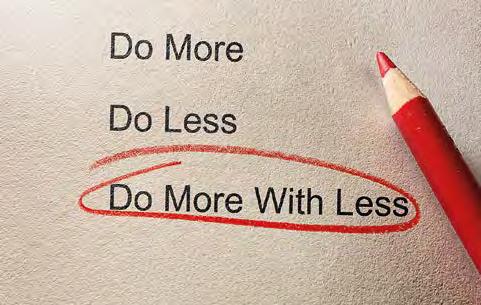
What would it look like to have high quality locally produced products rather than more of lower quality products produced in other communities?
Form small groups to brainstorm the creation of your own company.
You pick your team remembering diversity is strength.
The goal is to form a small enterprise that has the potential for high profitability.
Your goals are products that produce happiness, joy, and satisfaction for producer and consumer. It is not about passion as much as it is opportunity. Time is limited, and the mission is high level concepts, vision, and goals.
I will design my own happiness understanding that, often, less is more.
73 WILLPOWER
























































